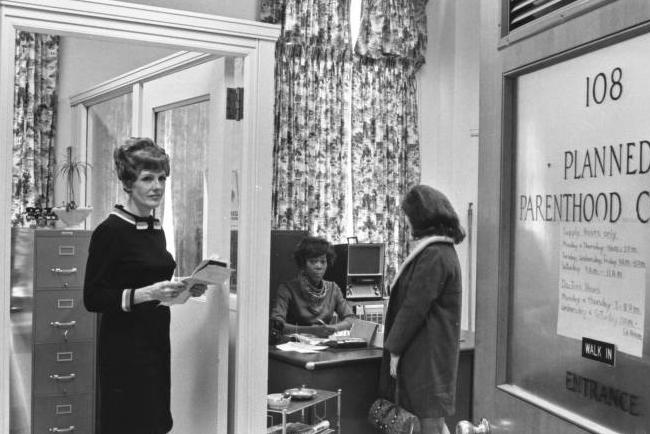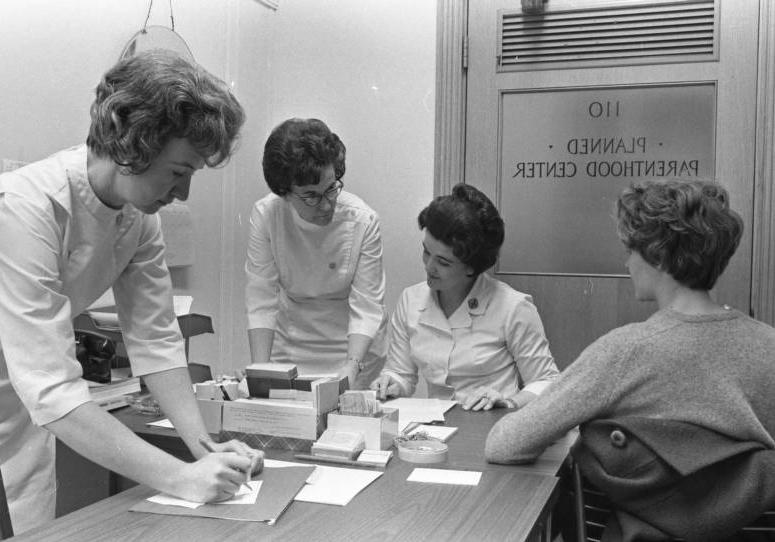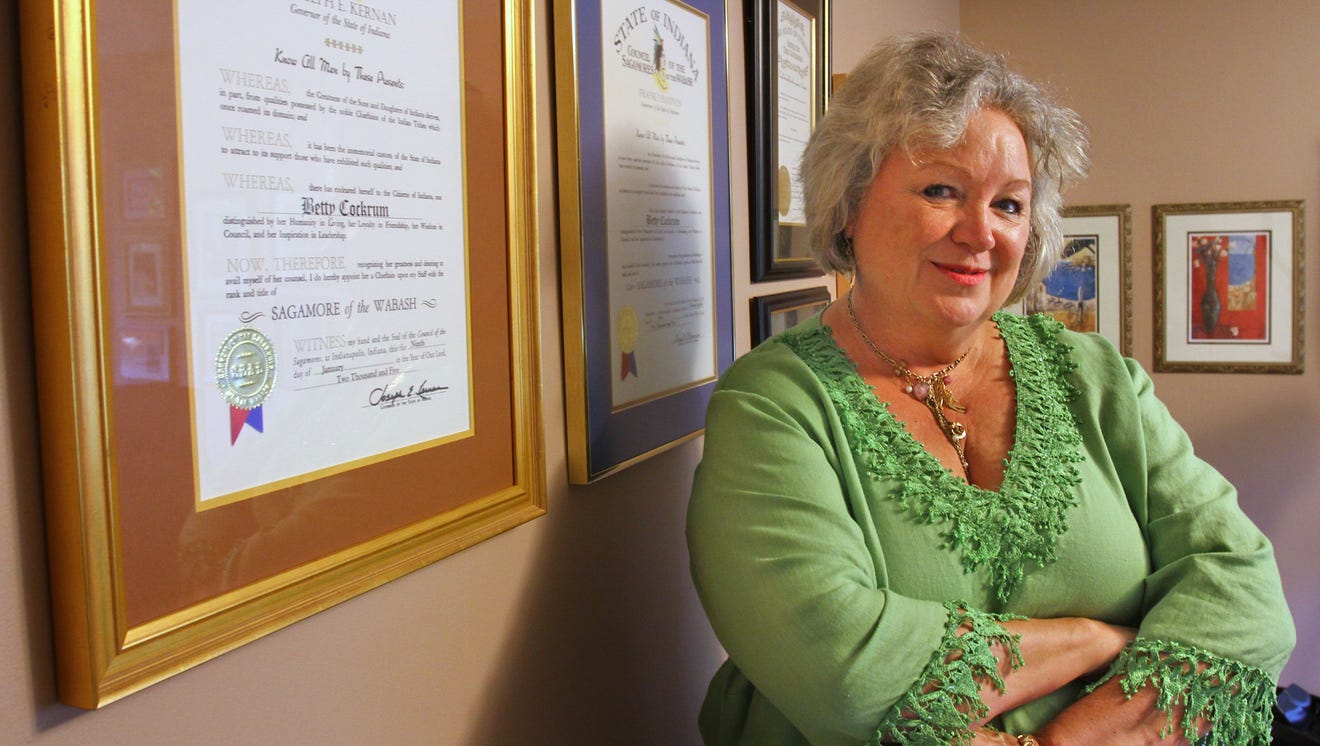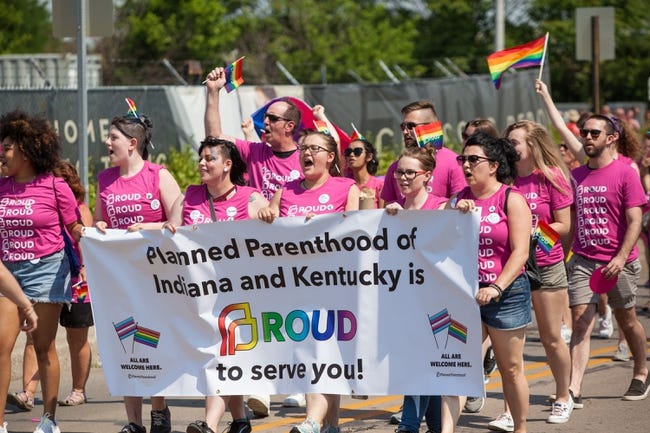Planned Parenthood of Indiana and Kentucky traces its roots to the early 1930s when Birth Control Leagues opened across the country despite the federal Comstock Laws. These statutes prohibited the publication and distribution of information about sex, sexuality, contraception, and human reproduction.

Margaret Sanger, the founder of the American Birth Control League and a public-health nurse, challenged the legal prohibitions that restricted access to contraceptives for poor people, although contraceptives were available to wealthy women who had access to private physicians. She opened her first clinic in New York City in 1916, was arrested, and served time in jail to demonstrate her commitment to bringing contraceptives to all women.
The Indiana Birth Control League was established in 1932, and a year later the Maternal Health Clinic opened in Indianapolis. In 1933, the Kentucky Birth Control League was founded, opening its first clinic at the Norton Infirmary in Louisville.

The Indiana Birth Control League did not challenge the Comstock Laws as blatantly as Sanger did. During the 1930s, poor married women with two or more children living in Indianapolis were required to bring a physician’s or social service agency’s referral in order to receive contraceptives. Women lacking the financial means to pay for contraceptives were refused service and attempts to publicize the league’s service were nonexistent.
Though attitudes about birth control changed at a glacial pace in the 1930s and 1940s, physicians and social workers commonly promoted the idea of contraception for all women. In 1935, the nation’s General Federation of Women’s Clubs called for the repeal of laws banning the distribution of birth control information and devices, and in 1937 the American Medical Association declared contraception as an acceptable and necessary medical practice.

The Indianapolis Birth Control League began to advertise services in the early 1940s, and birth control leagues in Indiana and Kentucky became affiliates of Planned Parenthood Federation of America, the name the American Birth Control League adopted in 1942.
By 1950, the Indianapolis agency established new offices in the English Foundation Building, where they provided extended hours to accommodate working women. The agency also reached out to men in order to counsel couples about family planning, reproductive health, and general marital issues.

Many new Planned Parenthood offices opened during the 1950s and 1960s due to the uptick in clients that resulted from the U.S. Food and Drug Administration’s approval of the birth control pill in 1960 and the 1965 repeal of the almost century-old Comstock Laws.
New challenges and controversies arose in the 1970s with the growing polarization of the “pro-choice” and “right-to-life” movements, fueled by the U.S. Supreme Court’s guarantee in 1973 of the right to an abortion in Roe v. Wade. Planned Parenthood’s services grew to include birth control and pregnancy testing; health screening, including screening for sexually transmitted diseases; patient education; education and training programs for youth and adults in the community; counseling; and a resource center.
Beginning in the mid-1990s, Planned Parenthood affiliates nationwide began merging as the health care landscape became increasingly technology driven. In 2002, under the leadership of CEO the organization went through many mergers. In 2004, a merger created one statewide Planned Parenthood affiliate for Indiana, Planned Parenthood of Greater Indiana. In 2008, Kentucky’s two affiliates merged to become one, which ultimately merged with Indiana’s in 2013 to become Planned Parenthood of Indiana and Kentucky (PPINK) in 2013.
As reproductive health issues became more politicized, Cockrum battled anti-choice legislators in Indiana. During her tenure as president and CEO of Planned Parenthood, numerous anti-abortion laws sought to pull federal and state funding from health centers and institute stricter requirements for abortion clinics and doctors. Cockrum led PPINK through many legal battles suing the state of Indiana five times, twice successfully to protect abortion rights and heighten the visibility of the need for access to reproductive health care.
Planned Parenthood remains committed to serving individuals in Indiana and Kentucky without bias and judgment with high-quality health care. It seeks to reduce unintended pregnancies and sexually transmitted infections through age-appropriate and accurate sexual health education. In 2019, over 53,000 women, men, and young people received medical care and education thanks to the generosity of Planned Parenthood supporters. Pap smears, breast exams, and treatment for sexually transmitted infections are among the services provided by the organization which is an affiliate of the Planned Parenthood Federation of America, the nation’s leading sexual and reproductive health care advocate and provider.

Help improve this entry
Contribute information, offer corrections, suggest images.
You can also recommend new entries related to this topic.